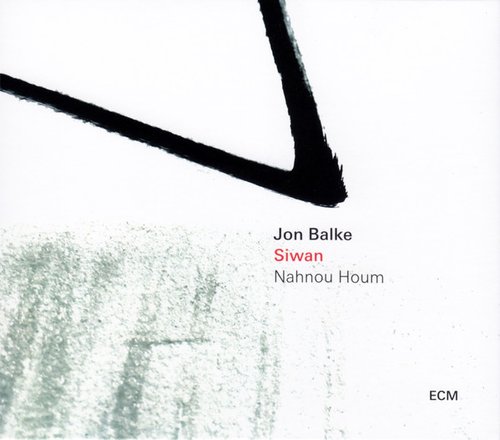
Artist: Jon Balke & Siwan
Album: Nahnou Houm
Genre: Modern Creative, Contemporary Jazz, Folk
Label: ECM Records
Released: 2017
Quality: FLAC (tracks+.cue)
Tracklist:
- Duda (5:38)
- Desmayar Se (2:35)
- Castigo (4:46)
- Del Rey (5:00)
- Ma Kontou (4:12)
- Nahnou Houm (6:40)
- Zem Zemeh (2:10)
- Aun Bebiendo (4:31)
- Arco y Flecha (3:23)
- Sin Nada Querer (4:43)
- Itimad (3:56)
DOWNLOAD FROM FILECAT.NET >>>
- Personnel:
- Mona Boutchebak - vocals
- Derya Turkan - kemence
- Helge Norbakken - percussion
- Pedram Khavar Zamini - tumbak
- Jon Balke - keyboards
Barokksolistene: - Bjarte Eike - violin, leader
- Alison Luthmers, Oivind Nussle - violin
- Milos Valent, Per Buhre, Torbjorn Kohl - viola
- Judith Maria Blomsterberg, Mime Brinkmann - violoncello
- Johannes Lundberg - double bass
The 2009 self-titled debut from pianist/composer Jon Balke's Siwan ensemble was universally acclaimed as his modern composition and improvising quintet met Moroccan singer Amina Alaoui and Bjarte Eike's Barokksolistene, a Baroque group that weds the raw rhythms of Scandinavian folk to High Baroque. The album offered composed and improvised music centered on Gharnati music, inspired by the Al-Andalus era (730-1492). That inspiration is taken further afield on Nahnou Houm (English translation: "we are them"). Ms. Alaoui has been replaced by Algerian vocalist and oudist Mona Boutchebak, whose background lies in Arab-Andalusian music. The eight-year break between albums was because Balke sought an Andalusian singer who could assimilate his material in a contemporary group. (Ms. Boutchebak has performed with Western symphony orchestras, jazz, rock, and hip-hop groups as well as Arab classical ensembles.) The question the composer pondered while writing was: "How would Europe and the rest of the world have developed if the three religions (Islam, Judaism, and Christianity) had managed to co-exist in the aftermath of Al-Andalus?" Siwan can and does offer an answer: its members are rooted in the three aforementioned traditions and work at cultural and musical cooperation ardently.
Balke used the words of poets from the period -- Lope de Vega, Ibn al-Zaqqaq, Saint John of the Cross, Farid al-Din Attar, and others -- in compositions that showcase Siwan's abilities in structured and democratic interplay as well as structured improvisation. The members of this collective integrate their discoveries as they go. Balke's use of electronics with harpsichord and piano blurs boundaries, and builds bridges between sounds and textures and a multitude of harmonic spaces. Opener "Duda" dazzles as harpsichord, low and high strings, and percussion let Boutchebak passionately and dramatically deliver a crack in time through which to deliver Ibn al-Zaqqaq's verse (which portrays spiritual and romantic love as inseparable). In "Desmayar Se," her voice is the centerpiece around which bowed double bass, cellos, and harpsichord revolve like spokes on a multicolored wheel. On "Del Rey," the intersection of sweeping contrapuntal strings and Arabic percussion with samples of unruly crowds creates contrast and communion. "Castigo" greets listeners with the shimmer and glide of strings as Boutchebak's vocal hovers above the rumble of drums and double bass. The title track is one of several instrumentals. Harpsichord, strings, dumbek, and other percussion interact around a central modal theme before being extended by follow-up cut "Zem Zemeh," a bubbling drum workout fitted with nocturnal ambient electronics. "Aun Bebiendo" is utterly contemporary as Boutchebak's vocal all but instructs strings and kemençe to illuminate Farid al-Din Attar's metaphors of the sea and the desert as coexistent inside the human heart. Nahnou Houm is a woven quilt of history, mystery, and endless curiosity that, while asking "what if?," simultaneously presents an argument that uses historical precedent as a framer of present reality. As a modern group, Balke's Siwan reveals just how much remains to be discovered in art at the intersection of histories, cultures, and religions.
Review by Thom Jurek

